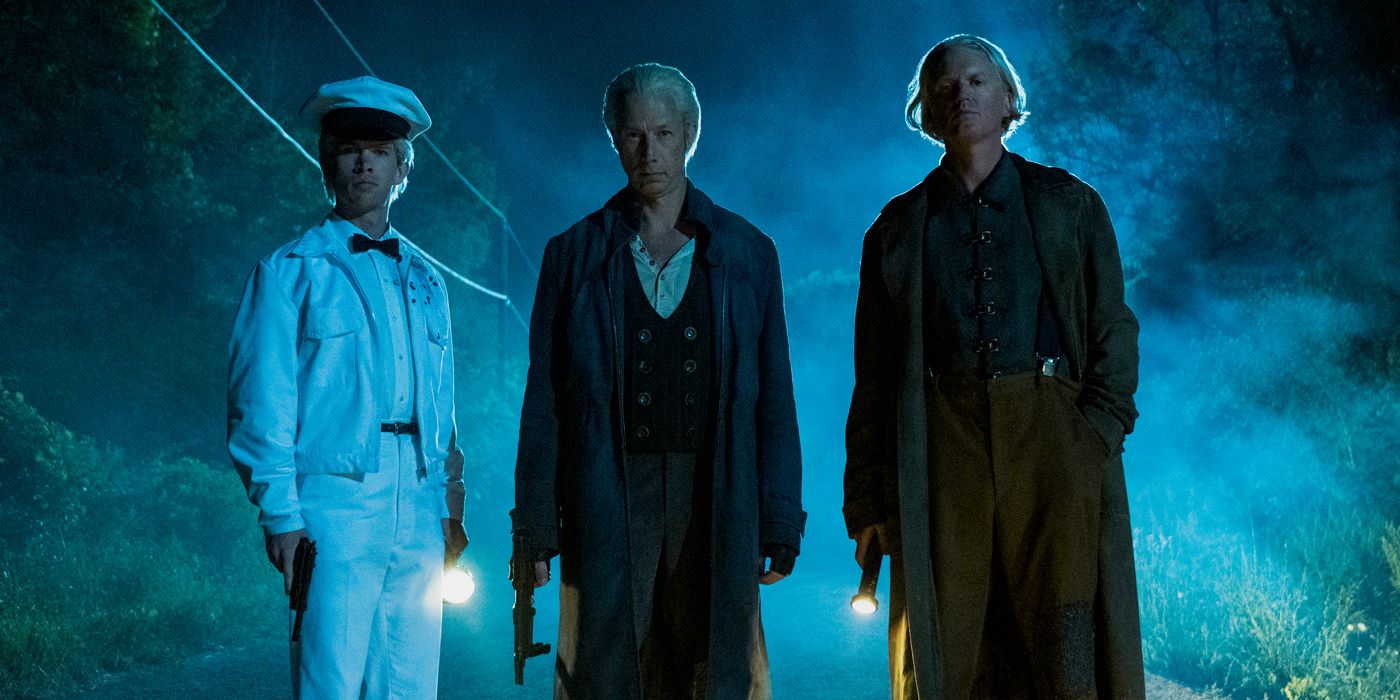Just finished the Umbrella Academy Season 2. The series has never had the artistic heights of the Boys or Punisher, but if you liked Season 1 you should like this one as well. It is of course about family, and rather than reviewing all 8 hours, I'm just going to point out a couple of ways it dealt with this theme.
(All of these are fairly obvious, don't @ me for lack of originality. I just thought they should be written down at least.)
The biggest is the structure of the season. I was not looking forward to this sequel season (and took a while to watch it) out of fear of this. The strength of this show is the characters, their dysfunctions, and the enabling environments they have built their lives in. Family entanglements and metaplot pull them out of those environments, which is a fun arc to watch, but as a group they are painted far less well than each of their individual worlds.
Like many of the underplanned televised series, it looked like their second season could not replicate that. Characters would just be caught up full time in the metaplot - especially as they all ended the season by jumping into a time portal together into the sixties. Why do we the audience care about whatever built-from-scratch metaplot stuff in the sixties they will deal with?
Turns out their answer was pretty good! The siblings get deposited separately over the course of years throughout the sixties, cut off from each other, and having a long time to wait before reuniting. This allowed them to find and build new lives that represent where they are psychologically. Join the Civil Rights movement. Forget everything and live on a farm. Work for a boss that values you. Get married. Start a cult. These lives were meaningful because they made sense as what each character would create, and they had to be extracted from again to get the metaplot and family unity on the road. This way Season 2 replicated the same arcs as the first.
***
The most interesting and surprising bit was "the Swedes." Of course they were boring. That was the point and the way they could surprise you.
Season 1 of course had Hazel and Cha-Cha. Colorful, fun, humanized characters as the MIB instead of faceless mooks. A good subversion but it also took over the season. They and their problems were interesting enough that we spent more and more time on them, instead of the original characters. Any show sufficiently committed to humanism starts to develop this character bloat, of course, and I wouldn't want Season 1 without it. But a whole new set of assassins to have their character development and conflict every season becomes a labor instead of a surprise.
Instead we see something inhuman and ignorable, in S2E1 when these three mute, albino, nordic brothers just start shooting everything they see to get at the family. They can exist as this threat that moves things along, and be mowed down by the end, without complicating the plot further. Good job.
Except it's not as easy as that. First one of them is killed by a booby trap. And we see a brief shot of the two others giving him a viking funeral. It's sad and sweet but still weird and distant, like finding out elephants have a graveyard for their own. "Oh neat, animals do this human-like thing too."
In the penultimate episode, they take their twist. The two Swedes attack Allison, who mind controls one into killing the other in self-defense. Watching the one choke out his only remaining human connection was shot intensely.
Later we see the last remaining Swede alone in his safe house. Not plotting yet more blood revenge against the protagonist. But looking at a childhood photo of him and his lost brothers. Remembering his forced fratricide. Staring at his hand. And raising an axe to chop it off. He is filled with so much pain and loathing over what he did when under mind control that he is going to chop his own hand off!
This did not take a lot of screen time, and in fact it all had zero dialogue. But this silent arc took them from faceless threats to something with human pain and loss. We can still see the love in the inhuman, much like in "I Am Legend."
Because of this development, he earns the final resolution where instead of killing or being killed by the Umbrella Academy, they can understand each other to say "Enough," and stop the revenge.
***
On a very minor note, I had to laugh at one small joke.
It's a rule of this blog that whenever a media work makes reference to some work of art or otherwise plot-insignificant work, what they choose to reference is a direct window into the themes the auteur is addressing. Again, see I Am Legend (or how I criticized Parasite for failing this.)
Our-Five tells his past-self they made a typo in their calculations for traveling through time. What was the typo? A decimal point misplacement.
"Instead of 5.7, it was 0.57"
Instead of Five being separated from the Seven, Five is on the side of the Seven.
Small touch, but nice.


No comments:
Post a Comment